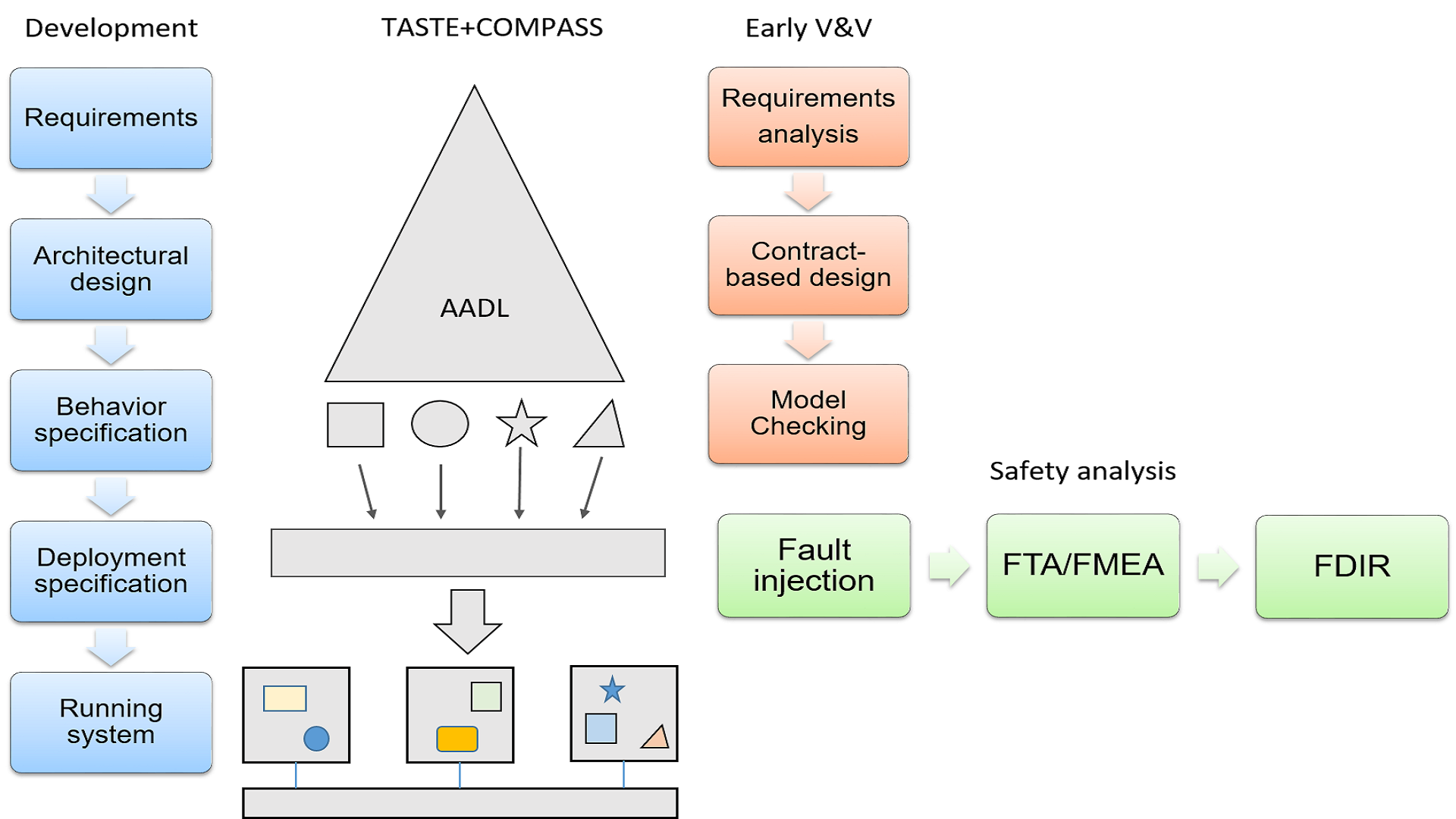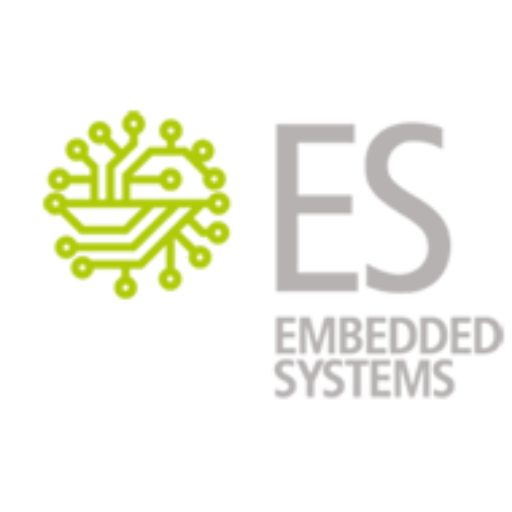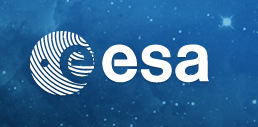
The goal of COMPASTA is to integrate the COMPASS toolset with TASTE. COMPASS is a toolset for System-SW Co-Engineering developed in a series of ESA studies from 2008 to 2016. It is based on a dialect of AADL and provides a full set of verification and validation techniques, based on model checking, including requirements analysis, faults extension, functional correctness, safety assessment and dependability, FDIR, performability analysis. TASTE is a development environment dedicated to embedded, real- time systems, created by initiative of ESA in 2008. TASTE can be used to design small to medium-size systems. It is based on the idea of correct-byconstruction software. The modeling languages include AADL for the system-level view of the architecture, ASN.1 for data abstraction and implementation, and other languages for behavior specification, e.g. SDL and Matlab Simulink.
The integration of COMPASS and TASTE has the goal to bridge the gap between the architectural level design and the system implementation and deployment, harmonizing the functionalities for system design and system implementation into a coherent tool chain. The integration is based on the COMPASS* idea, namely a view where the COMPASS back-ends are split from the COMPASS front-end and integrated directly into the TASTE front-end. In this way, the COMPASS functionalities are made available in TASTE, to support the analysis of specifications written in different input languages and for different purposes. The project will investigate how to harmonize the COMPASS view and the TASTE view both at the conceptual level and at the technological level, taking into account the semantics of the integration. This integration will significantly foster the adoption of the COMPASS/ TASTE toolsets, which have been developed for over a decade. Finally, this project could pave the way to a direct connection between Capella/SysML and TASTE and to the industrial exploitation of the integrated tool chain.



